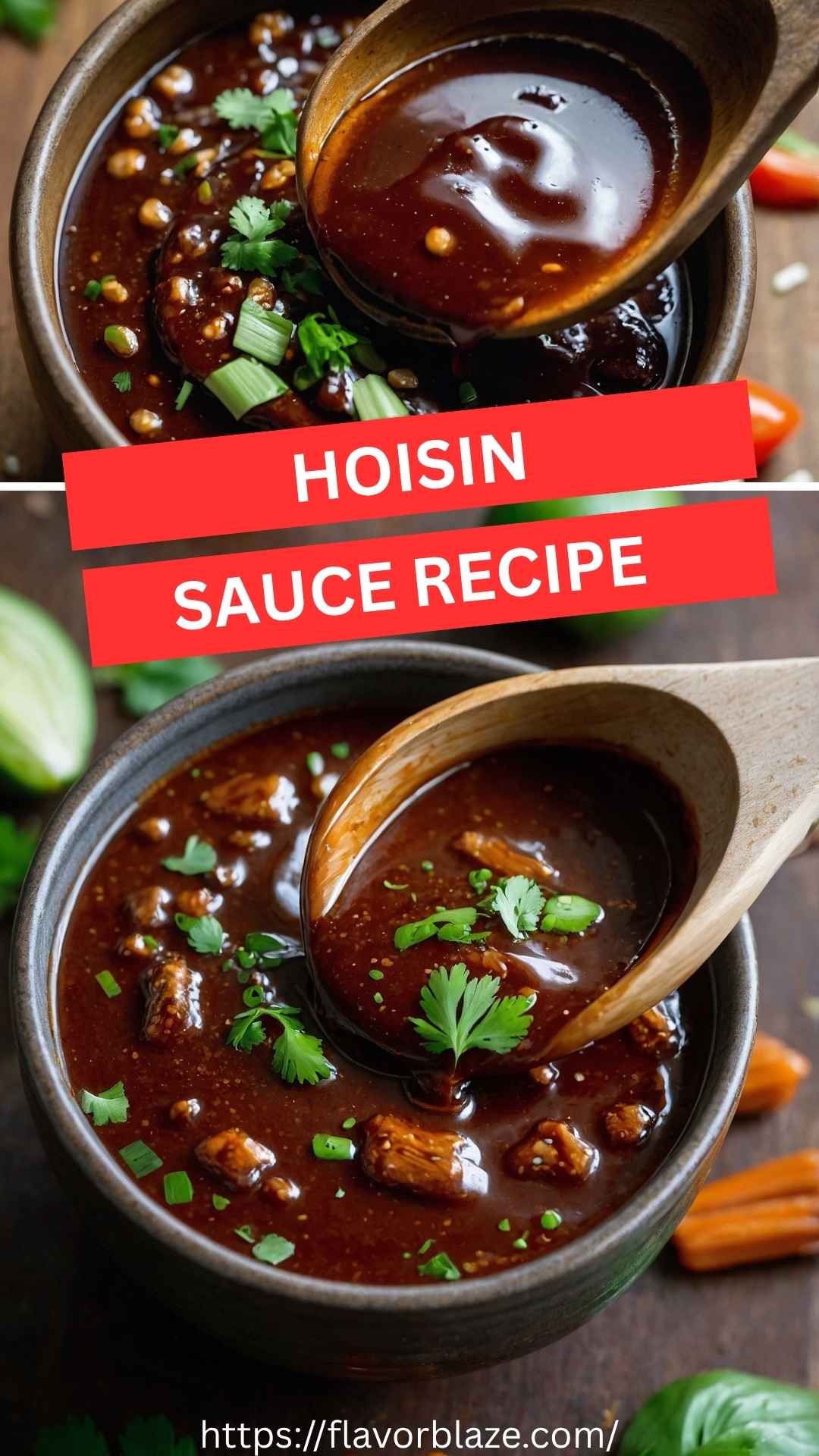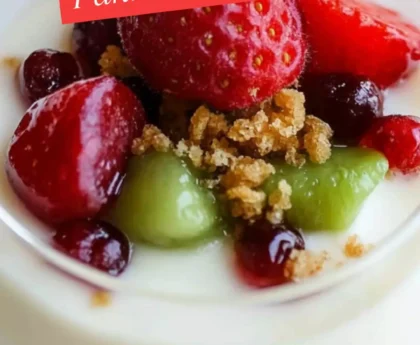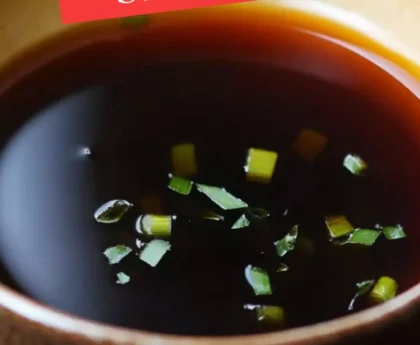Are you looking to elevate your meals? Hoisin sauce might be your answer. This thick, dark sauce is a staple in Chinese cuisine. It’s sweet but tangy, with a hint of spice.
You can use it in countless ways—from marinades to dipping sauces. The good news? Making your own hoisin sauce is easier than you think.
What Can You Pair with Hoisin Sauce?
Before we dive into the recipe, let’s talk about what hoisin sauce pairs well with. It complements grilled meats beautifully. Think of barbecued chicken or ribs brushed with this sauce for a hint of sweetness. Stir-fried vegetables love it too.
Toss in some broccoli, bell peppers, and snap peas, and drizzle this sauce for a mouthwatering dish. You could even use it as a dipping sauce for spring rolls or dumplings. The options are endless!
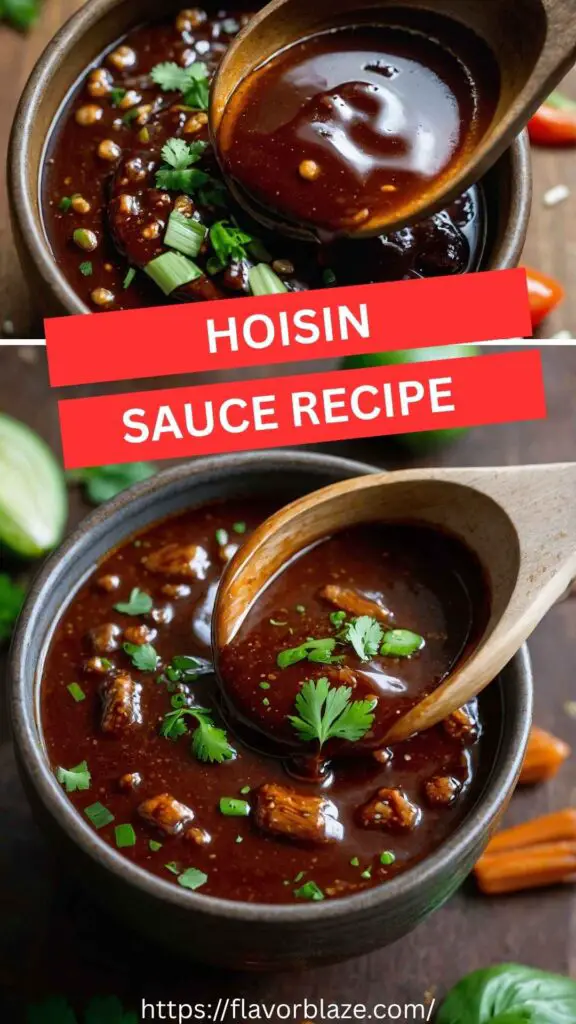
You’ll Also Like These Recipes
Hoisin sauce is like the Swiss Army knife of the condiment world. It boasts a rich, complex flavor that can make even the simplest dishes sing. After years of experimenting in my kitchen, I’ve come up with a version that balances sweet, salty, and umami flavors perfectly.
Over time, I’ve learned that not only does hoisin add flavor, but it also provides a luxurious texture to dishes. So, let’s roll up our sleeves and get into the nitty-gritty of this versatile ingredient!
What is Hoisin Sauce?
Hoisin sauce is a Chinese condiment made from soybeans, garlic, vinegar, and sugar. The name “hoisin” translates to “seafood,” though it’s not purely meant for seafood relations.
You’ll find it in dishes like Peking duck and Kung Pao chicken. Its thick consistency makes it ideal for basting, marinating, and dipping.
How Does It Taste?
The first time you experience hoisin sauce, your taste buds will have a party. It’s sweet, yet salty—like a fine dance on your palate. The garlic adds depth, and the fermented soy contributes a lovely umami touch.
For those who enjoy a hint of spice, some recipes incorporate chili garlic sauce, like the one I’ll share with you today, incorporating the perfect kick to keep your taste buds engaged.
Why You’ll Love This Recipe
You are going to love making this hoisin sauce at home. It’s simple, quick, and allows you to control the ingredients. Believe me, there’s nothing like the satisfaction of creating something from scratch. Plus, homemade means no preservatives or artificial flavors.
Ingredients
2 tablespoons creamy peanut butter
1/2 teaspoon freshly grated ginger
1 tablespoon seasoned rice wine vinegar
2 teaspoons toasted sesame oil
2 teaspoons chili garlic sauce
1/4 teaspoon freshly ground black pepper
1 teaspoon hoisin sauce
3 tablespoons dark molasses syrup
1/4 cup tamari or low-sodium soy sauce
2 fresh garlic cloves, finely grated
1 teaspoon cornstarch
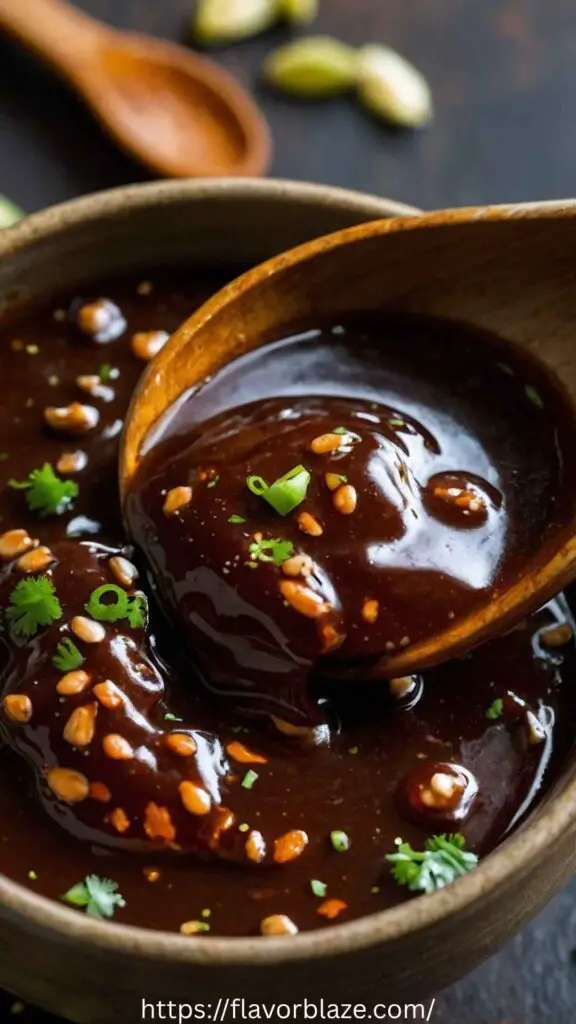
Step-by-Step Directions
Step 1: Gather Your Ingredients
First, I recommend setting out all your ingredients on the counter. This will not only save you time but will also ensure you have everything ready to go. When I cook, I love to do a little mise en place—it means everything in its place!
Step 2: Mix the Backing Agents
In a medium mixing bowl, combine the creamy peanut butter, ginger, seasoned rice wine vinegar, and toasted sesame oil. Using a whisk, blend these until smooth. The peanut butter and sesame oil will create a creamy base.
Step 3: Add the Sweetness and Spice
Next, incorporate the chili garlic sauce, black pepper, molasses syrup, and tamari or soy sauce. Stir well to ensure that the flavors meld beautifully. The combination here will offer a delightful mix of sweet and spicy.
Step 4: Infuse with Garlic
Grate the fresh garlic cloves and mix them into the concoction. Fresh garlic will provide a punch that powdered forms simply can’t achieve.
Step 5: Thicken Your Sauce
Sprinkle in the cornstarch. This is crucial for giving your hoisin sauce that wonderful thickness. Continue mixing until all of the ingredients are well combined and you have a smooth, cohesive sauce.
Step 6: Taste and Adjust
Here comes the fun part: Tasting! Adjust any ingredient as necessary. Need a little more sweetness? Maybe a dash more chili sauce for heat? Go wild.
Tips for Making Hoisin Sauce
Use Fresh Ingredients: Fresh garlic and ginger pack the most flavor. Don’t go for the jarred versions if you can avoid it.
Adjust to Your Taste: Don’t be afraid to play with the ratios. If you like it sweeter, add more molasses. Prefer it spicier? Kick up the chili garlic sauce.
Check for Allergies: If you’re cooking for someone with allergies, ensure you use the appropriate substitutes, like gluten-free soy sauce.
Ditch the Preservatives: By making it from scratch, you bypass any artificial flavors. It just tastes better!
Keep it Simple: You don’t need to overthink it. Stick to this recipe first, then tweak to your heart’s content later.
Nutrition Information
Hoisin Sauce Recipe Nutrition Facts
How Do You Store Your Hoisin Sauce?
This hoisin sauce can be stored in the refrigerator for about a week. Use an airtight container or mason jar to keep it fresh. Giving it a good stir before each use will help maintain that lovely texture.
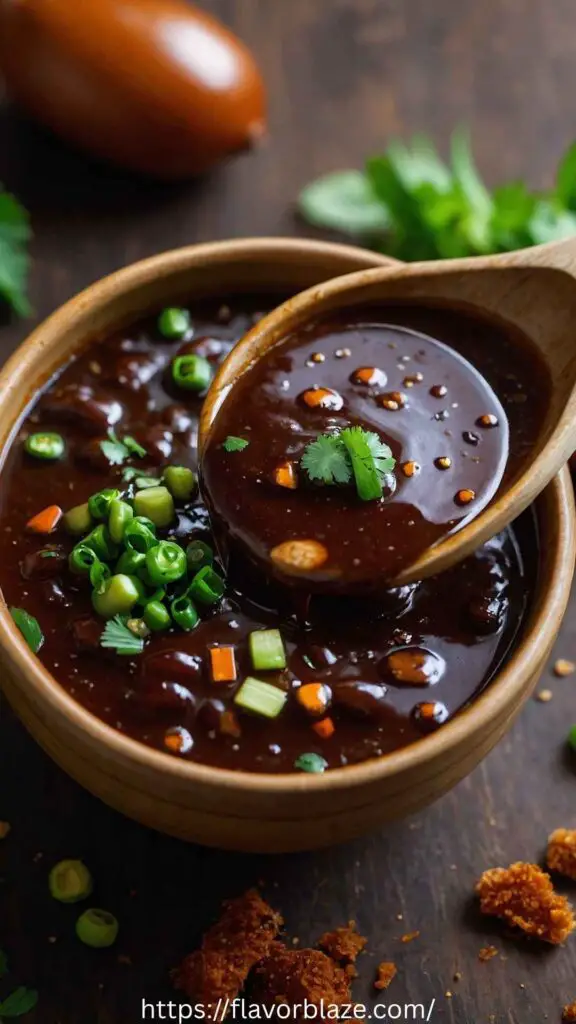
What Other Substitutes Can You Use in Hoisin Sauce?
If you lack some ingredients, fear not! Here are some substitutes:
- Soy Sauce: Use regular or low sodium if you’re out of tamari.
- Maple Syrup: In place of molasses, this can provide a different sweetness.
- Sunflower Seed Butter: Instead of peanut butter for a nut-free version.
- Teriyaki Sauce: A sweeter alternative if you’re in a pinch.
- Barbecue Sauce: It can offer a different twist in flavors, especially in grilling.
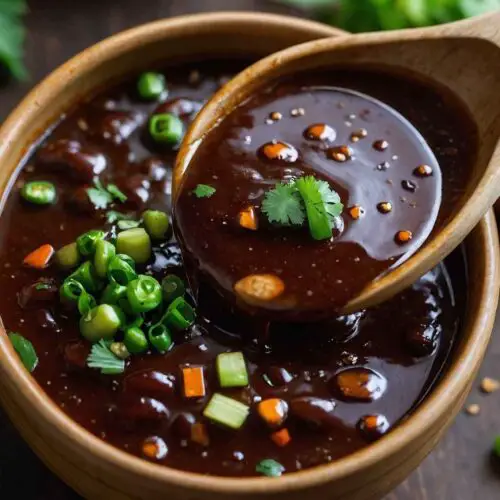
Hoisin Sauce Recipe
Equipment
- Mixing bowl
Ingredients
- 2 tablespoons creamy peanut butter
- 1/2 teaspoon freshly grated ginger
- 1 tablespoon seasoned rice wine vinegar
- 2 teaspoons toasted sesame oil
- 2 teaspoons chili garlic sauce
- 1/4 teaspoon freshly ground black pepper
- 1 teaspoon hoisin sauce
- 3 tablespoons dark molasses syrup
- 1/4 cup tamari or low-sodium soy sauce
- 2 fresh garlic cloves finely grated
- 1 teaspoon cornstarch
Instructions
Step 1: Gather Your Ingredients
- First, I recommend setting out all your ingredients on the counter. This will not only save you time but will also ensure you have everything ready to go. When I cook, I love to do a little mise en place—it means everything in its place!
Step 2: Mix the Backing Agents
- In a medium mixing bowl, combine the creamy peanut butter, ginger, seasoned rice wine vinegar, and toasted sesame oil. Using a whisk, blend these until smooth. The peanut butter and sesame oil will create a creamy base.
Step 3: Add the Sweetness and Spice
- Next, incorporate the chili garlic sauce, black pepper, molasses syrup, and tamari or soy sauce. Stir well to ensure that the flavors meld beautifully. The combination here will offer a delightful mix of sweet and spicy.
Step 4: Infuse with Garlic
- Grate the fresh garlic cloves and mix them into the concoction. Fresh garlic will provide a punch that powdered forms simply can’t achieve.
Step 5: Thicken Your Sauce
- Sprinkle in the cornstarch. This is crucial for giving your hoisin sauce that wonderful thickness. Continue mixing until all of the ingredients are well combined and you have a smooth, cohesive sauce.
Step 6: Taste and Adjust
- Here comes the fun part: Tasting! Adjust any ingredient as necessary. Need a little more sweetness? Maybe a dash more chili sauce for heat? Go wild.
Notes
Nutrition
Frequently Asked Questions
Can I use hoisin sauce as a marinade?
Yes, not only can you use it as a marinade, but its balance of sweet and salty makes it fantastic for meats. Just coat the protein, let it sit for a few hours, and then cook as desired.
Is hoisin sauce spicy?
Typically, hoisin sauce is not very spicy. The spiciness comes in when you add chili garlic sauce or other hot components.
What dishes can benefit from hoisin sauce?
This sauce enhances stir-fries, grilled meats, and even salads. Try using it in Asian-inspired bowls and as a dip for spring rolls.
How do I know if hoisin sauce has gone bad?
A change in odor or separation can signal that it’s time to toss it. It should still smell sweet and slightly savory.
Can I freeze hoisin sauce?
Yes, you can freeze the sauce after placing it in an airtight container. Just be aware that it may alter the texture slightly upon thawing.
What if I don’t like peanut butter?
You can swap it out for sunflower butter or even omit it. The sauce may slightly differ in texture, but it will still taste great.
Conclusion
Crafting your hoisin sauce at home opens a world of flavor. It provides a new twist to your favorite meals, encouraging culinary creativity. With just a handful of ingredients and a bit of time, you’ll have a delicious condiment ready to enhance your dishes.
The journey of taste starts with you bravely stepping into the kitchen and trying new experiences—today, that journey begins with this hoisin sauce recipe. Go ahead, give your meals the flavor boost they deserve, and savor the results! Happy cooking!

